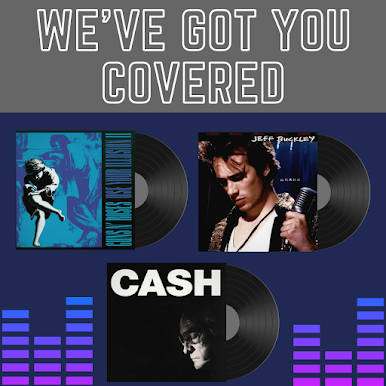The Hidden Symptom of Streaming
The cost of online music streaming services to artists has been hotly debated in recent weeks. Key figures from the industry have questioned the morality of streaming giants like Spotify and Apple Music, suggesting that musicians who make their work available on these platforms do not get a fair price per listen.
"Access to unlimited music is fast becoming an expectation; it's almost a commodity. The days of paying for an album or an individual song are gone in the majority of people's eyes," said Matthew Hunt, Artist Management's Head of Production. "To have restrictions to music taken away is fantastic, but it doesn't come without side-effects."
As well as the meagre pay-outs, artists have also criticised streaming providers for not doing enough to promote new music, opting instead to make recommendations to listeners that contain mostly household names and 'old-school classics'.
"A lot of my Spotify recommendations are singers and bands that I already listen to regularly," said one user we spoke to. "I tend to stick to what I know. It's not that I don't want to hear new music – I just wouldn't know where to start."
Both of these legitimate concerns have made significant news stories in recent weeks. However, one lesser publicised by-product of the streaming era is also worthy of considerable attention; indeed, it could permanently alter the relationship between musicians and their work and forever change the perceived value of chart-topping hits.
The likes of major artists like Bob Dylan, Dolly Parton, David Crosby, and many more have recently struck multi-million dollar deals to sell their songs' publishing rights. Several industry leaders have highlighted the significance of these exchanges: Universal Music describes the deal for 600 of Dylan's catalogue as "one of the most important deals of all time." In some cases, the COVID-19 crisis, as well as the rising dominance of streaming, has made deals like these "absolutely inevitable", in the eyes of one industry executive.
 |
| Bob Dylan: The latest in a long line of stars to sell the publishing rights to their music in a multi-million dollar deal |
"It's widely accepted that selling albums is not how artists make their money these days," continued Mr Hunt. "And with live gigs currently out of the question, and with streaming starting to dominate the way music is disseminated, it makes sense for artists wanting to cash in - this is especially the case for those looking to firm up retirement plans!"
With investors always on the lookout for safe, reliable returns, what could be better than the increasing value of evergreen hits? Owning songs that generate royalties whenever played on the radio, covered by another artist, licenced for TV or film or indeed, streamed via an app such as Spotify, Apple Music or Tik-Tok, are like a money tree that shows no sign of being felled. The opportunity these golden oldies present is too good for investors to ignore, fuelling a buying spree for back catalogues in a way never witnessed before.
2020 saw sales of artists' catalogues accumulate to more than $4 billion, according to research conducted by MIDiA, who specialises in global trends in the music and entertainment market. One of the most high-profile music procurers in the business today is Hipgnosis, a management company founded by Merck Mercuriadis and Nile Rodgers in 2018. The company, which claims to give investors the chance to make money from the royalties of songs, has spent over £1 billion in purchasing song rights since its launch, with a further £1billion expected to be spent in 2021.
These enormous sums might seem like good news for musicians, but once again, it is independent, lesser-known individuals that look to miss out on the benefits:
"The really high valuations go to the best properties, the really iconic artists, and there are only a finite amount of those," says Josh Gruss, CEO of Round Hill, which has spent $650m on buying rights to over 120,000 songs. “It’s about supply and demand. There is certainly only one Bob Dylan.” But what about independent artists looking to break through and get a fair price for the fruits of their labour? The opportunities for these individuals are becoming fewer in an industry that is already leaving them lagging behind.
"It's hard to see there being anything in this for the kinds of musicians I work with," said Miriam Price, a session musician working in London. "It's hard not to look at these deals and not see them as yet another example of blatant corporate greed… (On what needs to change for more indie artists to succeed) I think there's definitely a gap emerging in the market which could be really exciting. I really believe there's a desire amongst some music lovers to have a platform (like Spotify) which actively exposes them to new and unusual music. That's not a bad idea! (laughing) I've always wanted to start my own business!"
See Miriam's QuickFire Five Interview here:
https://artistmanagementservices.blogspot.com/2020/04/quickfire-five-interview-with-miriam.html




Comments
Post a Comment